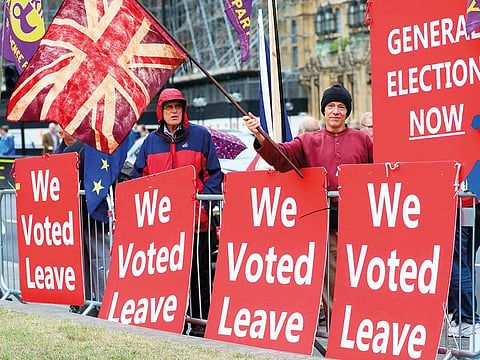The drift is over for UK’s Brexit gameplan
Foreign investors have reasonable assurances, but a higher stamp duty can be a pain

The Conservative victory in the UK election is undoubtedly the best outcome for those already invested in the UK’s housing market, either as an owner-occupier or a landlord.
For the first time since the 2016 Brexit referendum, there is at least a clearer path towards the UK’s exit from the EU, while the potentially disastrous nationalisation plans of the Labour party have been firmly rejected by voters. The new government’s substantial majority also increases the likelihood that any trade deal will the EU will be passed by Parliament.
This increasing certainty may encourage buyers and sellers back into the property market, while the broader impact of the Conservatives’ economy-friendly policies have already been felt in the stock and currency markets. However, the UK housing market has been under pressure for several years driven by affordability concerns, which were compounded by stamp duty changes and the Brexit vote in 2016.
Since then, UK house prices have risen just 3 per cent year-on-year compared with 7.5 per cent in the prior three years, while in London house prices have remained flat since 2016 in stark contrast to a cumulative rise of 45 per cent in the prior three years.
Still many caveats
The UK’s second election in three years is a function of – rather than a panacea for – Brexit and two critical challenges will hang over the economy in the medium term. Firstly, Boris Johnson has vowed to rule out any extension to the transition period beyond the end of 2020, reigniting the prospect of a “hard” Brexit if both parties are unable to agree a trade deal before this deadline.
Brussels has already warned that such a deadline is unrealistic. Secondly, the SNP’s (Scottish National Party) strong gains are likely to reopen the debate around a second referendum on Scotland’s independence in the forthcoming Scottish Parliament elections in 2021.
The importance of the UK’s trade deal with the EU should not be understated - 45 per cent of UK imports are from the EU, and 53 per cent of UK exports are to the EU. The UK had an overall trade deficit of 66 billion pounds with the EU in 2018, while a surplus of 28 billion pounds on trade in services was outweighed by a deficit of £94 billion pounds on trade in goods.
London’s financial services industry is central to UK services output, and its longer-term fortunes are intertwined with the EU trade deal.
Hard choices
Any systemic shock from a hard Brexit may therefore increase the trade deficit, further pressuring the pound (as the UK requires more foreign currency) and potentially increasing inflation. Monetary policy tools can restrict this - raising interest rates and tightening money supply typically dampen economic growth and by consequence house price growth.
In summary, the election result should benefit the property market in the short-term as investor and consumer sentiment rises on Brexit certainty, while the pound remains at historically low levels providing both a good entry point into the market with a hedge against Brexit uncertainty.
However, any house price growth is likely to be muted until the EU withdrawal is finalised, while the Conservative’s stated intention to introduce a further 3 per cent purchase tax on non-resident purchases is likely to further curtail foreign capital inflows into UK property.
That said, until then, and for those who can both move quickly and take a longer-term view, there remain deals to be had.
Matthew Palmer is Managing Director with Alvarez & Marsal in Dubai.



